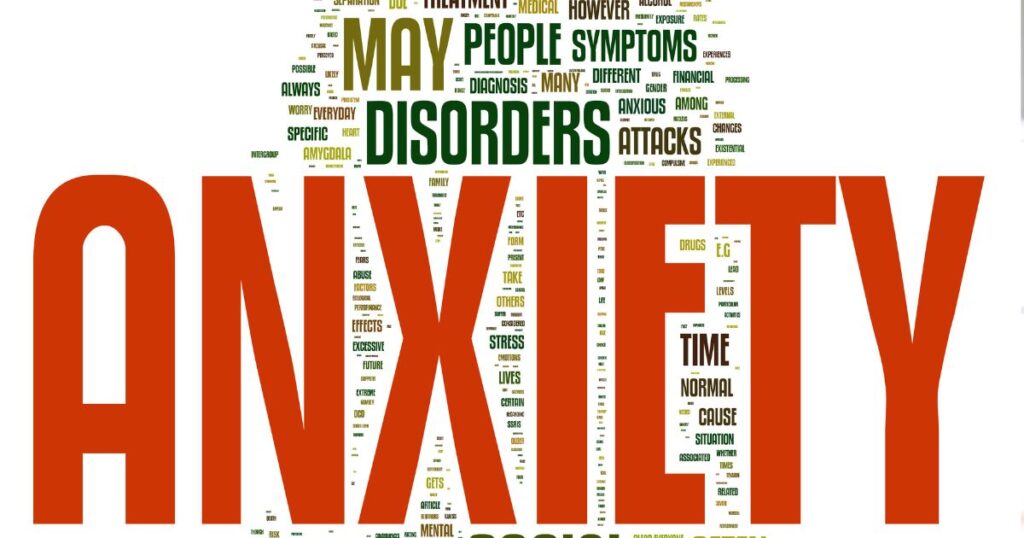
Social anxiety is more than just shyness—it’s an intense fear of being judged or humiliated in social settings. For people with social anxiety disorder (SAD), even simple interactions like talking on the phone or attending a gathering can feel overwhelming. This condition affects around 15 million adults in the United States each year, according to the Anxiety and Depression Association of America (ADAA), making it one of the most common mental health conditions.
Fortunately, social anxiety is manageable. With the right strategies, it’s possible to build confidence and feel more comfortable in social situations. In this article, we’ll explore practical tips to help you navigate social anxiety and start feeling more at ease.
Understanding Social Anxiety
What Is Social Anxiety Disorder?
Social anxiety disorder is a persistent fear of being judged, embarrassed, or negatively evaluated by others. This fear can lead to avoidance of social situations, which can impact relationships, career opportunities, and quality of life. People with social anxiety may feel extreme self-consciousness, fearing they will say something wrong or be unable to meet others’ expectations.
Some common symptoms of social anxiety include:
– Physical symptoms: Blushing, sweating, shaking, rapid heartbeat, or nausea.
– Behavioral symptoms: Avoiding social events, staying quiet in groups, or relying on “safety behaviors” like using a phone to avoid eye contact.
– Cognitive symptoms: Overthinking past interactions, worrying about upcoming events, and negative self-talk.
Tips for Navigating Social Situations with Social Anxiety
Start Small and Set Realistic Goals
When it comes to managing social anxiety, starting small is key. Jumping into large gatherings or high-stress social events can be overwhelming. Instead, set achievable, small goals that allow you to build confidence gradually.
Examples of Small Steps
– Start with low-pressure interactions: Practice small conversations with friends, family, or even strangers in everyday settings, such as at the grocery store.
– Attend smaller gatherings: Opt for smaller group gatherings over larger events, as they can feel less intimidating and provide a safe space to practice social skills.
– Set specific goals: Set achievable goals, like saying “hi” to a coworker or asking someone about their day. Gradual exposure can help reduce anxiety over time.
Setting realistic goals can make social situations feel more manageable and help you develop resilience. As you meet these small goals, you’ll likely feel more comfortable moving on to bigger challenges.
Focus on Your Breathing
When anxiety strikes, the body’s fight-or-flight response kicks in, leading to physical symptoms like a rapid heartbeat or shallow breathing. Practicing deep breathing techniques can help calm these physical symptoms and promote relaxation.
How to Practice Deep Breathing
1. Inhale slowly through your nose, filling your belly with air.
2. Hold your breath for a few seconds.
3. Exhale slowly through your mouth, releasing all the air.
4. Repeat this process a few times, focusing on the rhythm of your breath.
Deep breathing helps to activate the body’s relaxation response, slowing down the heart rate and calming the mind.

It’s a simple, discreet technique that can be practiced anywhere, helping you manage anxiety before or during social interactions.
Challenge Negative Thoughts
People with social anxiety often experience negative self-talk that can heighten their fears. Thoughts like “Everyone will think I’m awkward” or “I’ll mess up and embarrass myself” are common but usually exaggerated and unfounded.
Steps to Challenge Negative Thoughts
1. Identify the thought: Recognize what you’re telling yourself. For example, “I’ll say something stupid.”
2. Question its validity: Ask yourself if there’s any real evidence supporting this thought or if it’s based on fear.
3. Replace with a realistic thought: Instead of thinking, “Everyone will judge me,” try, “Most people are focused on themselves and aren’t paying close attention to me.”
Over time, challenging negative thoughts helps to reframe social situations in a more realistic way, making them feel less intimidating.
Use Visualization Techniques
Visualization is a powerful tool for managing social anxiety. By visualizing yourself successfully navigating social situations, you can boost confidence and reduce fear.
How to Practice Visualization
1. Find a quiet space and close your eyes.
2. Imagine yourself in a social situation that makes you anxious. Picture yourself feeling calm, confident, and at ease.
3. Visualize each detail, from the conversations you’ll have to how you’ll respond to people’s reactions.
Practicing visualization can help create a positive mental blueprint for real-life situations, making it easier to approach social interactions with confidence.
Practice Mindfulness
Mindfulness encourages you to stay present in the moment, reducing overthinking and worry about others’ judgments. Mindfulness techniques can help you shift your focus from self-conscious thoughts to the actual experience of the social situation.
Simple Mindfulness Techniques
– Body scan: Focus on each part of your body, from head to toe, and notice any sensations, like tension or relaxation. This can help reduce physical symptoms of anxiety.
– Five senses exercise: Look around and notice five things you can see, four things you can touch, three things you can hear, two things you can smell, and one thing you can taste. This technique grounds you in the present moment.
A study in Mindfulness Journal found that mindfulness practices can reduce social anxiety symptoms by 40%, highlighting their effectiveness in helping individuals stay grounded during social interactions.
Celebrate Small Successes
Progress in managing social anxiety often comes in small steps, and each success is worth celebrating. Recognizing and celebrating small achievements reinforces positive experiences and boosts self-confidence.
Examples of Celebrating Successes
– Write it down: Keep a journal to track your successes, whether it’s attending a social event or starting a conversation. Reflecting on these moments can remind you of your progress.
– Reward yourself: Treat yourself with something enjoyable, like a favorite snack or activity, as a reward for facing a social challenge.
– Share your success: Share your achievements with someone you trust, like a friend or therapist. Their encouragement can further boost your confidence.
Celebrating successes can build momentum and keep you motivated to continue challenging yourself in social situations.
Seeking Professional Support
When to Consider Therapy
If social anxiety is significantly impacting your life, relationships, or job performance, seeking professional help may be beneficial. Cognitive Behavioral Therapy (CBT) is one of the most effective treatments for social anxiety. CBT helps individuals recognize and change negative thought patterns and learn practical strategies for managing anxiety.

Another option is exposure therapy, which involves gradually facing social situations that trigger anxiety in a safe, controlled manner. According to the American Psychological Association (APA), exposure therapy can reduce social anxiety symptoms by up to 70% when combined with CBT.
Joining a Support Group
Support groups offer a safe environment to share experiences and learn coping strategies with others who understand social anxiety. Many people find that discussing their struggles with others who have similar experiences reduces feelings of isolation and provides encouragement.
Conclusion
Social anxiety can feel overwhelming, but with the right strategies, it’s possible to feel more comfortable and confident in social situations. By starting small, challenging negative thoughts, practicing mindfulness, and celebrating successes, individuals can make steady progress in overcoming social anxiety.
Remember, overcoming social anxiety is a journey, and each step forward is valuable. Whether you’re trying a breathing exercise before a meeting or visualizing a successful conversation, every effort counts. If social anxiety is significantly affecting your life, consider reaching out for professional support. With patience and practice, social situations can become more manageable, leading to a fuller, more connected life.











